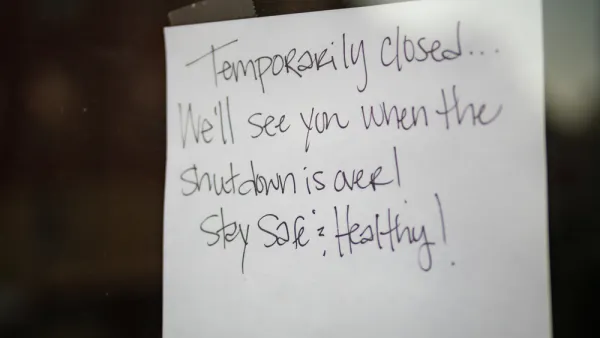A long awaited report on the future of transportation in the Bay State was released last Friday. Among the recommendations: a phaseout on the sales of gas and diesel powered light duty vehicles and allowing cities to enact cordon congestion pricing.

On Dec. 14, the Commission on the Future of Transportation in the Commonwealth released its two-part report on transportation needs and challenges facing the Commonwealth between 2020 and 2040. The commission was established by executive order in January to provide recommendations to the Baker-Polito Administration on how to best account for potential changes in transportation in the future.
"At the heart of the mammoth report’s many recommendations, said Transportation Secretary Stephanie Pollack, is fixing public transit and putting it on sound financial footing, with the explicit goal of reducing the number of cars on the road," reports Adam Vaccaro who covers transportation, infrastructure, and commuter issues for the Globe.
“Whether today or in the future, we simply must move more people in fewer vehicles if we are serious about reducing congestion and greenhouse gas pollution,” Pollack said.
Vaccaro reports on some of commission's many findings, which should, in theory, represent to some extent the administration's beliefs if only in the sense that Baker and Lt. Gov. Karyn Polito selected the commissioners.
Massachusetts should develop tools to phase out the use of gas-powered cars and light trucks after 2040, the commission said, by offering rebates and other incentives to steer people to electric vehicles. While internationally, France, the United Kingdom, and others are moving toward such policies, in the United States only California has come close to even broaching such an aggressive idea.
Cordon area congestion pricing was also a recommendation, but the governor's track record on congestion pricing, let alone cordon area tolling, is not exactly inspiring. On Aug. 3, Gov. Baker vetoed a rather simple legislative proposal to conduct a pilot program to reduce off-peak tolls, most likely on the three state tolled facilities. Baker preferred a study of traffic congestion.
In addition, Baker vetoed a vehicle miles traveled fee pilot program in August 2016.
Reception by groups
The report was received with some skepticism Livable Streets, a people-centered transportation advocacy group.
“I’m a little jaded because I’ve seen so many commissions and plans. So what’s next, Governor Baker?” said executive director Stacy Thompson. “Any transportation advocate can look at this document and find something they like and something they’d like to improve. But now, you’ve got this commission report, so what are you going to do about it?”
The Conservation Law Foundation and the Sierra Club were more optimistic.
“We need a strong mandate to decarbonize our transportation sector,” said Amy Laura Cahn, a senior attorney with the Conservation Law Foundation. “The goal for all cars to be zero-emission by 2040 helps set us on that pathway.”
"Given that transportation is our state’s largest source of greenhouse gas emissions, the release of this report demonstrates the first steps of Governor Baker taking that pledge [to focus on climate change] seriously," stated Deb Pasternak, Interim Chapter Director for the Massachusetts Sierra Club. "We encourage the Baker Administration to act quickly to implement solutions laid out in this report..."
Successful political campaigns in both the state Democratic primary and general elections this year conducted by the Sierra Club and 350 Mass Action were cited recently by InsideClimate News on the possibility that Massachusetts could be one of seven states to enact carbon pricing next year. The groups took action "after House lawmakers backpedaled on a revenue-neutral carbon tax that the Senate had unanimously passed," reported Marianne Lavelle.
Related:
- Could Boston Join Seattle in Proposing Congestion Pricing? April 19, 2018: The compelling reason behind Boston's looking at congestion pricing is traffic congestion, unlike Seattle where it is being viewed as a major way to reduce greenhouse gas reductions and fund public transit.
Hat tip to IBTTA SmartBrief.
FULL STORY: Mass. releases its vision for beating the traffic

Analysis: Cybertruck Fatality Rate Far Exceeds That of Ford Pinto
The Tesla Cybertruck was recalled seven times last year.

National Parks Layoffs Will Cause Communities to Lose Billions
Thousands of essential park workers were laid off this week, just before the busy spring break season.

Retro-silient?: America’s First “Eco-burb,” The Woodlands Turns 50
A master-planned community north of Houston offers lessons on green infrastructure and resilient design, but falls short of its founder’s lofty affordability and walkability goals.

Test News Post 1
This is a summary

Analysis: Cybertruck Fatality Rate Far Exceeds That of Ford Pinto
The Tesla Cybertruck was recalled seven times last year.

Test News Headline 46
Test for the image on the front page.
Urban Design for Planners 1: Software Tools
This six-course series explores essential urban design concepts using open source software and equips planners with the tools they need to participate fully in the urban design process.
Planning for Universal Design
Learn the tools for implementing Universal Design in planning regulations.
EMC Planning Group, Inc.
Planetizen
Planetizen
Mpact (formerly Rail~Volution)
Great Falls Development Authority, Inc.
HUDs Office of Policy Development and Research
NYU Wagner Graduate School of Public Service




























